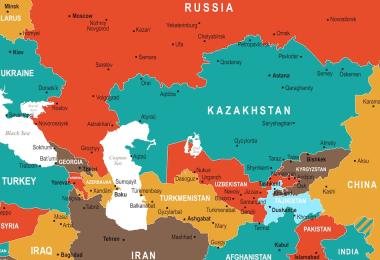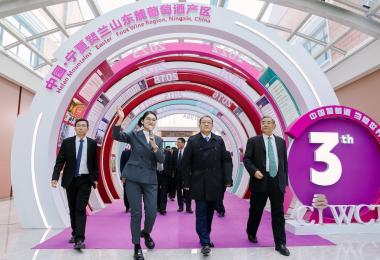"You can’t make me pay.”
Imagine that claim from a customer who brings a half-dozen bottles of wine to a restaurant and is told there is a corkage fee.
But such a customer might well feel justified in Beijing. Not only does the law allow diners to bring drinks free of charge, but high markups at many venues inspire such thoughts in everyone from aficionados who know the true value of what’s listed to novices who don’t want to pay as much for a basic bottle as for their meal.
Such face-offs over corkage might be relatively rare but they are one quirk that makes Beijing a special spot for sommeliers.
And Beijing is indeed special. As capital of the millennium’s economic success story, it is home to a vast number of officials and business people, 165 embassies and dozens of media bureaus, and strong art, literature and education spheres. The wine scene reflects this diversity, with options from virtually every region and grape variety, a constant flow of incoming owners and winemakers hoping to tap China’s potential, and a rising number of fine wines from the country’s own producers.
Yet it is only recently that an intriguing wine scene has started to emerge and, alongside it, the profession of sommelier. A ‘who’s who’ of sommeliers for New York or London would include candidates with wine experience measured in decades. Here in Beijing? Five years, particularly at the same venue, is a fairly long run.
Signs of growth
China is the second-biggest market for the Wine & Spirit Education Trust (WSET) wine courses after the UK, and the ambitious seek courses everywhere from International Sommelier Guild to country-specific programmes by Wine Australia and Vinitaly, while entering sommelier competitions and seeking experience as wine judges.
Beijing-based Dorian Tang, national wine educator at importer/distributor ASC Fine Wines, has witnessed it firsthand since joining the company 14 years ago after a stint in the US as a sommelier. “We see more and more people from the on-trade taking classes, particularly for [WSET] Level 3,” says Tang, who adds they also sign up for the service-oriented Certified Sommelier Course.
The China National Sommelier Competition (CNSC), founded by Tommy Lam, is now in its eighth year, while the affiliated junior team competition now attracts 1,200-plus applicants from more than two dozen cities, with this year’s judges including both Brian Julyan, CEO of the Court of Master Sommeliers, and Barry Wiss, president of the Society of Wine Educators. An attempt has been made to create a print magazine – Pinor – for the country’s sommeliers. And a national association is in the works, says Lu Yang, corporate wine director for Shangri-La Hotels and Resorts and the 2010 winner of the CNSC. “Many fellow sommeliers have submitted their applications,” he says. “There is still a lot of work left to be done, but I think we will get there if we all work together as a team.”
The issue in Beijing, and most Chinese cities beyond Shanghai, is finding enough players. “There are three, maybe a maximum of five, full-time sommeliers in Beijing, those focused solely on wine, and I don’t think there will be many more soon,” says Weiley Lu, who worked in the field here for nearly a decade at quirky venues like Lugar and The Loop.
A key issue is money. Not only do many hotels and food and beverage (F&B) outlets not invest in dedicated wine personnel, says Lu, but when they do, the pay tends to be relatively low and the hours long. “People who hang out with us, who started as sommeliers seven or eight years ago, they’ve quit. They had to switch career paths to make more money,” says Lu. “They have to go for restaurant manager or, in a hotel, F&B manager.”
A case in point is Hans Qu, winner of that first CNSC in 2009 while at the Intercontinental in Shenzhen, who soon moved to Beijing and has mostly worked as an educator at Ease Scent Wine, on Chilean wine promotion with Patricio Tapas of the guide Descorchados, and now as head of Cuatro Sol Wine & Culture in Beijing. (He is also an International Sommelier Guild tutor.)
Larry Yang, a sommelier at JW Marriott in Beijing for more than a half-dozen years, and a CNSC runner-up, has moved south to Shanghai to work as a sales director for an American wine importer. And Lu himself has shifted his focus away from the restaurant side and to education and retail as the director of Wine Room.
Money is one thing, power is another. The sommelier position is still relatively new in Beijing, and China in general, with wine-buying and other key decisions still often made by F&B directors or restaurant managers. “They don’t get the respect they should as sommeliers,” says Vicente Muedra, general manager of importer Le Sommelier International. “Hotels have a lot of rules, administration, and contracts with their main suppliers. Even if you offer something nice, the sommeliers don’t have the power to add it. They don’t want to upset the system.”
Muedra also sees this relative immaturity of the Beijing scene as tied to the restaurant sector.
“Wine culture is created by restaurants, and Shanghai has more dynamic places, connections to more than 100 years of Western influence, and more interest in hedonism,” he says, estimating that city has at least ten times more fine-dining restaurants than Beijing.
Even so, Beijing does see a growing number of consumers buy wine for taste, rather than simply for status. The wine bar scene has shown signs of life the past year, with Italian venues Vesuvio and Buona Bocca, organic-focused venue Fu, and more general spots such as VinVino and InVino all new to the game. And, as noted, the food and beverage trade is flowing into the WSET and other programmes.
There is still hope that the profession will steadily mature. And while it is hard to pick the future stars in these early days, here are some people for which to keep an eye out.
Standout sommeliers
Meiyu Li, wine director of the Park Hyatt, first got into wine while studying at the Sorbonne. She trained as a sommelier at CAFA Formations and at Bistrot du Sommelier in Paris, Domaine Seppi Landmann in Alsace, and Château Haut-Bailly and La Vinotheque Wine Cellar in Bordeaux. In 2014, three years after joining Park Hyatt, she worked at Michelin-star restaurants Le Gavroche and Medlar in London, and passed the advanced test at the Court of Master Sommeliers. She was winner of the 2011 China National Sommelier Competition and has a consulting project called DrinkArts.
Frank Hao has a solid list of top Beijing restaurants on his CV, having worked as sommelier and/or manager at Sureno in boutique hotel The Opposite House, at highly regarded Italian restaurant Opera Bombana (where he helped oversee a 450-bottle wine list), and now at Tavola. He was one of nine candidates in the first CNSC, has served as a judge for contests such as the Asia Wine & Spirits Awards, and is a WSET diploma candidate.
Max Chong of The Peninsula helped relaunch the hotel’s wine programme, including at Jing Restaurant, which has a growing menu that now totals 530 wines. He has ample experience in Asia, having worked in Sanya, Shanghai and Singapore, with the last stop including the two-star Michelin restaurant Les Amis.
Sommelier Bruce Lee at China World Summit Wing, Beijing’s tallest building, oversees the hotel’s wine programme, including the 500-plus bottle menu at Grill 79. Lee’s resume includes stops as sommelier at Rosewood Hotel, Four Seasons and Maison Boulud, all in Beijing, and he has also worked the restaurant side at Jaan in Raffles and Cépe in Ritz Carlton.
Kerry Qin is among the numerous promising sommeliers with links to the Park Hyatt – she was a member of the winning trio from that hotel at the China National Wine Services Team Competition in 2012. She is now head sommelier at Rosewood Hotel, which has over 400 options on its Bistrot B wine list.
Ignace Lecleir might carry the titles ‘proprietor’ and ‘manager’, but you can still find him regularly in the role of sommelier at Temple Restaurant Beijing (TRB) and TRB Bites, regular contenders for the city’s best wine lists. These venues, and the former Maison Boulud that Lecleir helped open just ahead of the Beijing Olympics, have launched the careers of many in the wine business. The daunting 900-entry menu at TRB is an education in itself, with Lynne Chen currently in charge of it.
Finally, while not based in Beijing, Shangri-La corporate wine director Lu Yang wields enormous influence over the company’s many bars and restaurants. That includes niche Beijing venues like Cantonese restaurant Wu Li Xiang at Hotel Jen and T-Bazaar at Traders Hotel, as well as the namesake properties. Lu is not only in charge of the wine programmes but also recruiting and training all sommeliers. He has won numerous sommelier contests, including the CNSC, is a certified WSET, CIVB and BIVB educator, and translated Jancis Robinson’s How to Taste into Chinese. He holds a WSET diploma and is an advanced sommelier with the Court of Master Sommeliers.
This hardly exhausts the list of intriguing wine people, whether speaking about Stefano Censi at Scandinavian-inspired The Georg, manager Stefano Monte and operations director/sommelier Tony Shang at Opera Bombana, or those who have recently opened wine bars and aim to give the scene a boost. Whether or not the profession of sommelier quickly gains a foothold in Beijing, or whether it will be a subset skill for restaurant managers, F&B directors and wine bar owners remains to be seen. But given the obvious thirst for wine knowledge in the Beijing trade, perhaps it is best to put the semantics aside and allow the sommelier scene to develop in its own unique way.








